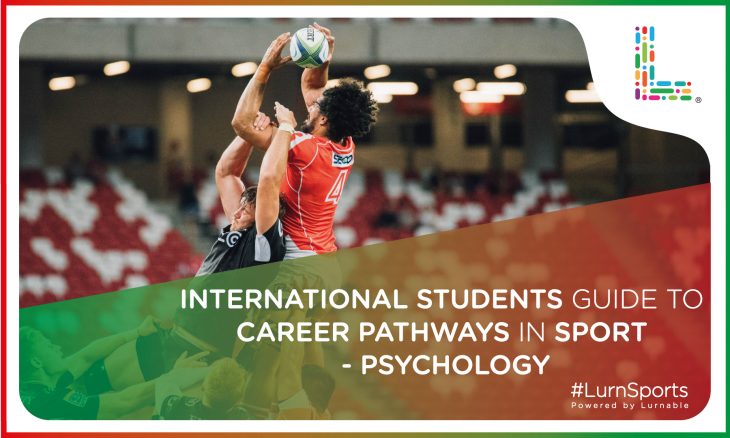INTRODUCTION
Picture the scene: You’ve fought long, drained all your energy reserves and your opponent does the unimaginable, they get ahead of you. All excitement and anticipation, every ounce of optimism drains until the beat of the crowd murmurs.
All the effort up until this point feels like nothing to those watching, but to everyone involved they don’t panic. They know they must lift themselves up land an equaliser. And that’s the focal point of this article, the workings behind the mentality.
Ever since one Norman Triplett made a very acute observation, when he compared the output between a solo cyclist in contrast with a group. He found those riding in a group exerted more, due to a competitive edge.
In this article we’ll highlight the life behind the metaphorical scalpel of a sports psychologist. Featuring the wage, description of role, career pathways and more.
SKILLS REQUIRED
- Comprehensive I.T abilities, especially when it comes to data analysis software and spreadsheets.
- Excellent empathising skills to allow clients to confide in you and understand what they need.
- Adaptability to manage and engage with different clients and different problems.
- Resilience to work under pressure in a competitive setting, especially if you’re employed by a big sport association.
- Demonstrate impeccable patience and motivational skills as mental care shouldn’t be rushed.
RESPONSIBILITES
As a psychologist you’ll be tasked with keeping athletes level headed and on track to succeed. You’ll work with either a group or an individual, managing and making sure they accurately set and keep track of their goals.
Through analysing performances with coaches and other team members you can teach them how to deal with pressure from coaches, fans or any self-doubts they have.
Your attention will be on their behaviour as well, and schedule regular meetings where you’ll discuss the future and any stressors, as bottling these up won’t do anyone good.
You will provide regular meetings where different mental practices will be taught. It’ll include things like the power of visualising goals, tricks to remain focused over the crowd noise and enhance overall performance.
It’s a very important role in modern sport. Growing confidence fuels passion to win and compete at the highest levels. Without it I can’t imagine how worse competition and spirit of most sports teams would be.
CAREER PATHWAY FOR SPORTS PSYCHOLOGY IN THE UK
You’ll need to go to university and do the following;
Obtain a psychology degree licensed by the British Psychological Society (BPS).
Then you’ll need a master’s degree also accredited by the BPS which covers sports and exercise psychology.
Finally, you must complete a structured course supplied by the Health and Care Professions Council (HCPC).
It’s worth noting that this is a very competitive field. You must demonstrate great research and application to even be considered.
After that you’ll find many organisations who host open days and are always looking to expand their workforce. As some of them operate on an international level.
TOP ORGANISATIONS RECRUITING SPORTS PSYCHOLOGISTS IN THE UK
- INTRA performance group
- Pete Jackson Sport Psychology
- Believe Perform
- Dan Abrahams
- Mind Odyssey
ULTIMATE EARNING POTENTIAL FOR SPORTS PSYCHOLOGISTS IN THE UK
Your salary will start at minimum between £19,000 – £21,000 as you begin working your way up, building connections and gaining experience.
Through gained experience you’d see it rise to £25,000 – £35,000 and employers begin to trust your work and ethic to helping.
Senior sports psychologists, working at high end institutions and clients can earn in excess of £50,000 per year for their services.
SKILL DEVELOPEMENT
Dealing with multiple people will lead you to having to aid those with many different mental issues. Your people skills will improve as well as your ability to decide what works best for certain individuals.
What you gain from experience is something that you can’t really teach. This will improve your problem-solving ability as you apply different methods to different minds which require different things.
You will learn different etiquettes of people from different backgrounds, how to speak with them and how not to disrespect them.
Use, knowledge and application of analytical software and spreadsheets will improve as you set goals and collaborate with different operations like doctors and nutritionists.
RECENT TRENDS
As the world changes and ways of connectivity increase, many disciplines must adapt to either take advantage or supply
If you’re a major sports star, chances are you have social media. Whether it’s Twitter, Instagram or any of the countless others, it means you’re more likely to be scrutinised. Any opinion or act that can cast bad light on you can be shared to and amongst millions in a matter of seconds.
By having one you are essentially at risk. Letting the negativity, pressure and scrutiny of fans, media and the likes follow you home and invade your social privacy. Having that weighing you down, even in the safety of your home, isn’t great.
A lot is being done in the industry to combat this. Things like campaigns against abuse and discrimination, being told to limit use of social media and not have it all together. It’s really powerful but equally as devastating to confidence and moral when you’re subjecting yourself to it.
Conclusion
Fast forward since and it’s become a major branch of study in the sporting world. Helping and aiding professionals alike to set goals, motivate and level out the weight failure brings.
It’d be fair to say that the world and the ways we think of it has changed and still is. For instance, men are no longer expected to bottle up their emotions and have a life long drought in their tear ducts.
It’s provided openness in a competitive setting that breaks down gender stigma and allows us to be exactly who we want to.
It’s no surprise since its inception into sport the performance, consistency and wellbeing of athletes has skyrocketed and long may it continue.












